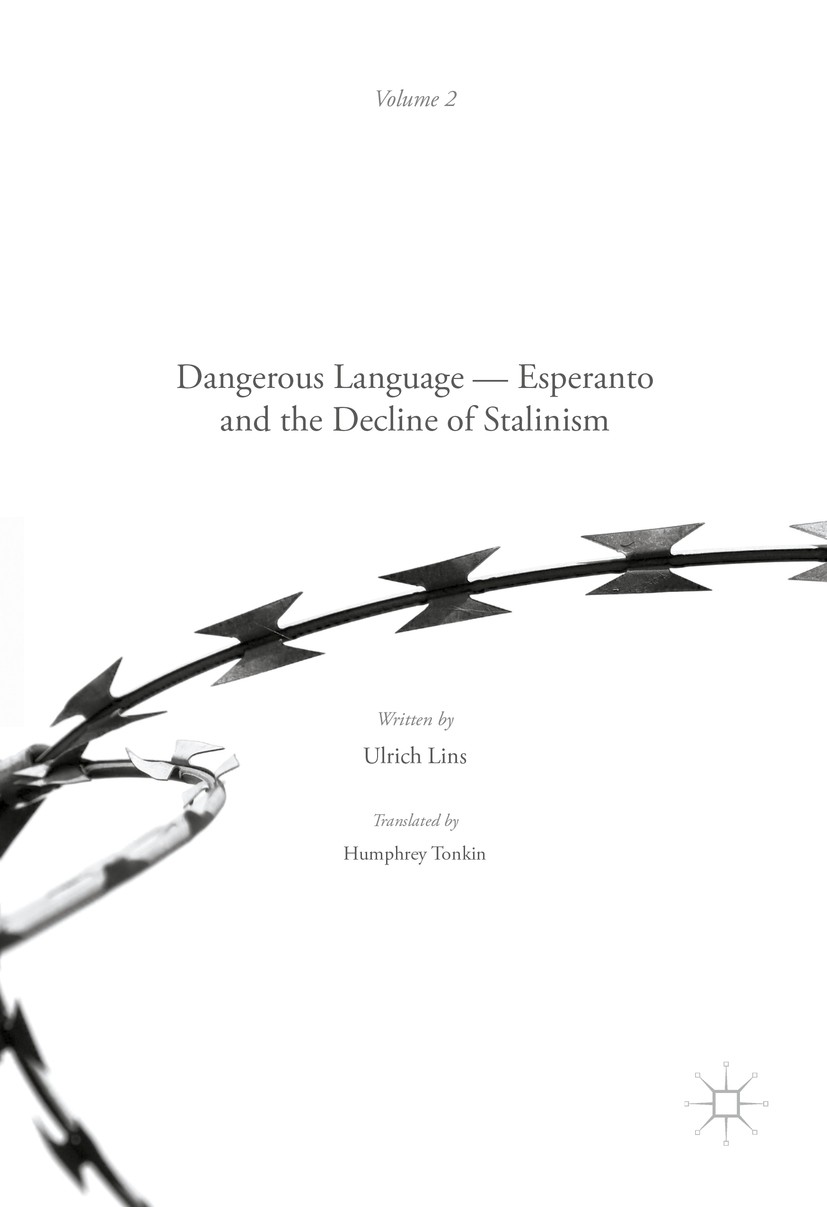| 書目名稱 | Dangerous Language — Esperanto and the Decline of Stalinism | | 編輯 | Ulrich Lins | | 視頻video | http://file.papertrans.cn/261/260390/260390.mp4 | | 概述 | Examines in depth that sad fate of the internationalist movement for a new world language, Esperanto.Offers the reader insight into archival materials documenting the persecution and mistreatment of t | | 圖書封面 |  | | 描述 | This is Volume 2 of .Dangerous Language.. This book examines the rise of the international language Esperanto, launched in 1887 as a proposed a solution to national conflicts and a path to a more tolerant world. The chapters in this volume examine the position of Esperanto in Eastern Europe during the Cold War; in particular it explores Stalin’s final years and the gradual re-emergence of the Esperanto movement. At first, its revival was limited to the satellite countries, especially Bulgaria and Poland, but, with Stalinism’s gradual retreat, Esperanto organizations reappeared in most East European countries and eventually in the Soviet Union itself. The progress was uneven, and its details reveal the stresses and strains that became apparent as the solidarity of the Soviet bloc declined. This book will appeal to a wide readership, including linguists, historians, political scientists and others interested in the history of the twentieth century from the unusual perspective of language. This volume is complemented by the sister volume .Dangerous Language — Esperanto under Hitler and Stalin. which offers a concentration on the creation and early emergence of Esperanto as an internat | | 出版日期 | Textbook 2017 | | 關鍵詞 | Zamenhof; citizens’ movement; Eastern Europe; new world language; European History | | 版次 | 1 | | doi | https://doi.org/10.1057/978-1-352-00020-7 | | isbn_softcover | 978-1-349-95801-6 | | isbn_ebook | 978-1-352-00020-7 | | copyright | The Editor(s) (if applicable) and The Author(s) 2017 |
The information of publication is updating

|
|
 |Archiver|手機版|小黑屋|
派博傳思國際
( 京公網(wǎng)安備110108008328)
GMT+8, 2025-10-6 01:46
|Archiver|手機版|小黑屋|
派博傳思國際
( 京公網(wǎng)安備110108008328)
GMT+8, 2025-10-6 01:46


